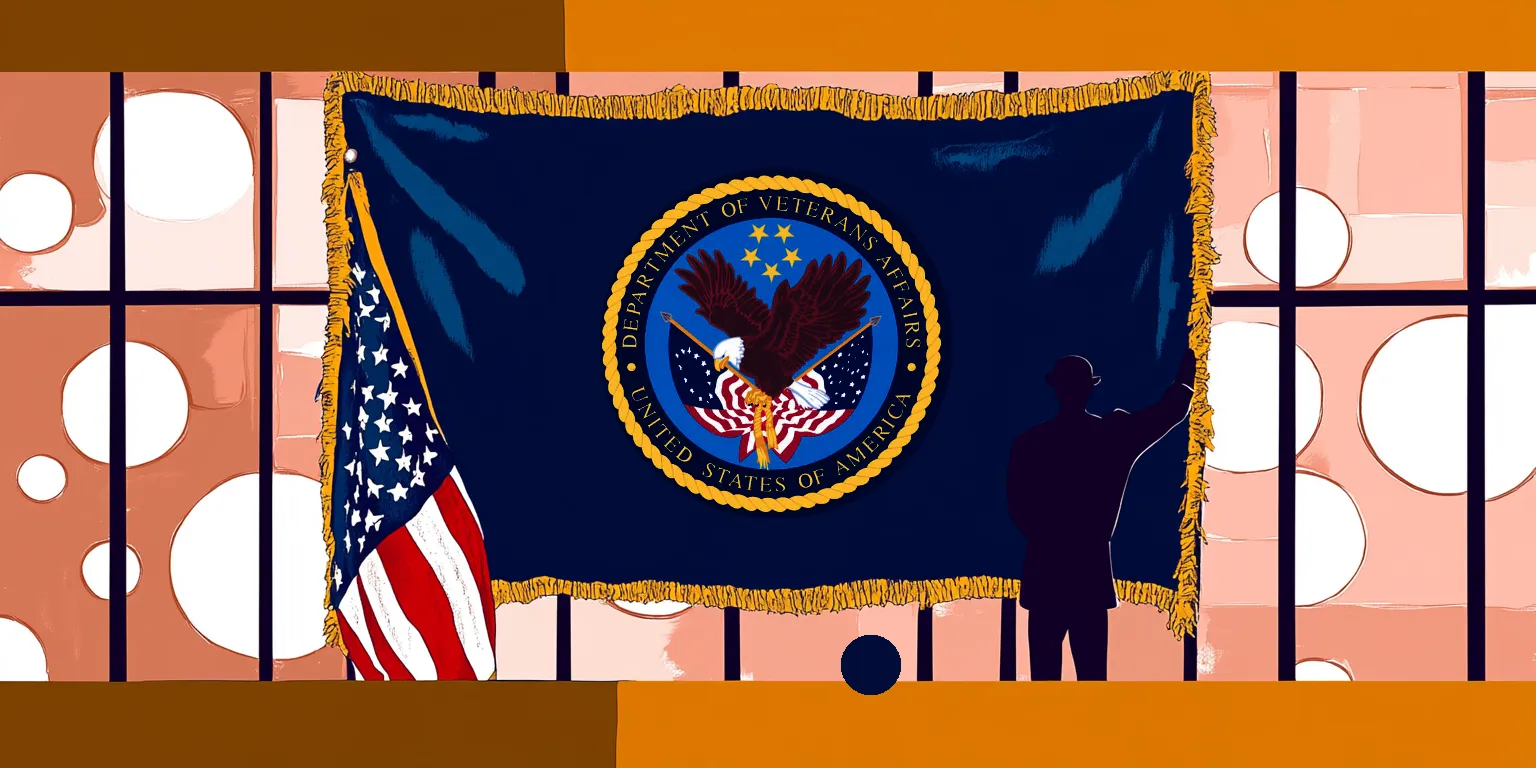In this week’s Psychedelic news roundup, we examine a recent survey that suggests most people who try psychedelics have a positive experience. Other news includes legal challenges brought against the FDA for blocking psilocybin access for terminally ill patients, regulatory changes in Vermont, and more.
Survey Reveals Positive Experiences and Growing Acceptance of Marijuana and Psychedelics Among Americans
Survey of 1,134 American adults
Survey of 1,134 American adults on April 25-28, 2024 | today.yougov.com
Marijuana Moment reports on a new survey conducted by YouGov which reveals that a majority of Americans who have tried substances such as marijuana and various psychedelics report predominantly positive experiences. The survey, which involved 1,134 American adults, was conducted between April 25-28, 2024. The finding highlighted that 57% of respondents had used marijuana, with 57% of them reporting a positive experience. Furthermore, psilocybin mushrooms, used by 20% of the respondents, received the highest positivity rate, with 65% describing their experience favorably. Other substances like LSD and MDMA also saw more than half of their users reporting positive outcomes.
The survey takes a deeper look into public perceptions regarding the legalization of these substances. While marijuana enjoys substantial support for legalization at 60%, psychedelics such as psilocybin, LSD, and MDMA garner much less public approval, with only 27%, 15%, and 16% support, respectively. However, among those who have used these substances, the support for legalization is notably higher, particularly for marijuana (78%) and psilocybin (63%). LSD, however, shows a division among its users, with 38% supporting and 43% opposing its legalization.
These findings are particularly relevant as the federal government considers reclassifying cannabis and as more states explore reforms related to psychedelics. The changing attitudes reflected in the survey suggest a shift towards greater acceptance of these substances, influenced by personal positive experiences and an increasing awareness of their potential benefits. This shift in public opinion could play a significant role in shaping future drug policies and the legal status of these substances across the United States.(1)
Keep Up with Uncensored Psychedelic Trends
Join our newsletter at Psychedelics Uncensored.
We respect and protect your privacy. By subscribing your info will be subject to our privacy policy . Unsubscribe easily at any time
Legal Battle Heats Up Over Right to Try Psilocybin for Terminally Ill Patients

The LA Times covers an ongoing debate over the “right to try” psilocybin for terminally ill patients, which is currently under judicial review by the 9th Circuit. Dr. Sunil Aggarwal, a palliative care physician based in Seattle, has challenged a decision by the U.S. Drug Enforcement Administration (DEA) that prevents him from prescribing psilocybin to his patients with late-stage cancer. These patients, Dr. Aggarwal argues, could potentially benefit from the drug’s anxiety and depression-alleviating effects as part of their end-of-life care.
Under both state and federal “right to try” laws—enacted in over 40 states and by Congress in 2018—terminally ill patients are allowed access to experimental drugs not yet approved by the U.S. Food and Drug Administration (FDA). Dr. Aggarwal’s contention hinges on these laws, asserting that they should permit the use of psilocybin to ease existential distress in dying patients, a stance backed by various studies. However, the DEA maintains that psilocybin’s classification as a Schedule I drug under the Controlled Substances Act prohibits its prescription outside of approved research settings.
This legal confrontation is not isolated. Dr. Aggarwal is simultaneously involved in another case requesting the DEA to reschedule psilocybin to make it more accessible for therapeutic use. The broader medical and legal communities are closely observing these cases, as they could set significant precedents for the use of psychedelic substances in medical practice. Several states and the District of Columbia have supported Dr. Aggarwal, challenging the DEA’s stance as an overreach that could infringe on state rights and interfere with critical medical decisions regarding patient care.(2)
Vermont Moves Closer to Establishing Psychedelic Therapy Task Force

As covered by Marijuana Moment, Vermont’s legislative journey towards potentially legalizing psychedelic-assisted therapy has advanced significantly. The state House of Representatives passed a bill to establish a working group focused on this innovative treatment method. The bill, known as S.114, was approved via a voice vote after incorporating amendments from a recent committee discussion, which included involving the Vermont Psychological Association and the state Department of Health in staffing and providing technical assistance to the proposed task force.
Initially introduced in the Senate by Senator Martine Larocque Gulick, the bill has undergone several revisions since its inception. Initially, it included provisions to legalize the use and possession of psilocybin. These were later removed to concentrate efforts solely on forming a working group that would explore the therapeutic potential of psychedelics. The task force will review current research and the public health benefits and risks associated with psychedelic treatments, as well as examine how other states have regulated such therapies.
The legislative changes made in the House also reflect a cautious approach toward the broader implications of decriminalizing psychedelics. Notable adjustments include the removal of members from the Psychedelic Society of Vermont and a psychiatric hospital from the task force, as well as striking provisions that would have directed the group to consider the criminalization of psychedelics and set timelines for access to treatments.
Keep Up with Psychedelic Trends
Get uncensored psychedelic news, events, and updates. Join Psychedelics Uncensored!
We respect and protect your privacy. By subscribing your info will be subject to our privacy policy . Unsubscribe easily at any time
Vermont’s latest effort to legalize psychedelic medicine comes at a time when several organizations, such as the Multidisciplinary Association of Psychedelic Medicine, have submitted new drug applications to the FDA. If the bill passes, Vermont could join other states like Rhode Island and Minnesota in authorizing such treatments, marking a pivotal development in the acceptance and regulation of psychedelic-assisted therapy in the United States.(3)
Therapists and Researchers Respond to ICER’s Criticisms of MDMA-Assisted Therapy for PTSD
Key stakeholders and researchers have issued a collective response authored by the Chacruna Institute for Plant Medicine to the Institute for Clinical and Economic Review’s (ICER) report on MDMA-Assisted Psychotherapy (MDMA-AP) for PTSD. This group of experienced therapists, trainers, and researchers involved in Phase III clinical trials have expressed their concerns about the potential misrepresentation of their studies. The response, led by professionals like Jamie Beachy, PhD, and Kelley O’Donnell, MD, PhD, aims to clarify and contextualize the issues raised in the report, advocating for the integrity of their research outcomes.
The ICER draft report, published on March 26, 2024, raised several issues, including the problem of functional unblinding (meaning the patient and therapist now know what drug was used in the study), the influence of expectancy on clinical outcomes, and ethical practice concerns within psychedelic therapy research. The therapists argue that the report’s critique of the trial methods, especially the choice of the primary outcome measure—reductions in the Clinician-Administered PTSD Scale for DSM-5 (CAPS-5)score —fails to recognize the standardized and widely accepted diagnostic practices in PTSD research. They acknowledge that while improvements related to specific traumas measured by CAPS-5 might not fully encapsulate a patient’s overall clinical status, this limitation is a common challenge across clinical studies on PTSD, not just those involving MDMA.
The researchers and clinicians point out that unblinding is a concern with most trials for psychiatric treatments and is not isolated to MDMA therapy. They emphasize that in their Phase III trials, measures were taken to minimize bias by using independent raters unaware of the drugs participants received. They believe this fact strengthens the credibility of the findings.
Furthermore, the researchers involved highlighted the rigorous training and adherence requirements for therapists involved in the studies. They assert that the criticisms regarding the generalizability of the study findings do not reflect the efforts made to maintain high standards of care throughout the research process.
The group also responds to ethical concerns by referencing the rigorous consent protocols and therapist training emphasizing participant autonomy and safety. They point out that any significant incidents of ethical misconduct cited by the report are exceptions rather than indicative of general practice in MDMA-AP trials.
Concluding their response, the therapists express hope that the final ICER report will incorporate their feedback and more accurately reflect the scientific data supporting the use of MDMA-AP for PTSD. They advocate for a balanced understanding that recognizes both the potential benefits and the complexities of bringing new and effective treatments to patients suffering from severe and treatment-resistant PTSD.(4)
The Risks and Considerations of Psychedelic Therapy for Personality Disorders

As reported by PsyPost, a recent study by researchers at Imperial College London examines the complex relationship between psychedelic substances and mental health, particularly highlighting the potential risks for individuals with personality disorders.
The study, which utilized self-reported data from 807 participants who have used psychedelics in different contexts—from recreational to therapeutic—employed the Warwick-Edinburgh mental wellbeing scale to measure changes in mental health. The findings indicated that while only 16% of participants reported negative experiences overall, a substantial 31% of these negative responses came from individuals with a history of personality disorders.
Despite these significant insights, the study’s reliability is tempered by several limitations, including its reliance on self-reported data, a high dropout rate (56%), and the absence of a control group for a robust comparative analysis. These factors potentially skew the results, requiring a cautious interpretation of the findings. Furthermore, the study’s approach of lumping different personality disorders together may have masked specific risks associated with each type, as personality disorders vary widely in symptoms and interactions with treatments.
The study sheds light on how different personality disorders might uniquely interact with psychedelic therapy. For instance, individuals with histrionic personality disorder (which involves attention-seeking behavior) might experience heightened emotional instability, while those with schizotypal personality disorder could become more paranoid. Similarly, people with narcissistic personality disorder may struggle with the reflective nature of psychedelic experiences due to difficulties in processing criticism.
As the field of psychedelic therapy evolves, it is crucial to refine these approaches to ensure they are safe and beneficial for all potential users, particularly those with personality disorders, emphasizing the importance of tailoring treatments to meet individual needs while rigorously assessing their impacts.(5)
Sources

1. Jaeger, K. (2024, May 9). Most Americans Who Have Tried Marijuana Or Psychedelics Had “Positive” Experiences, Survey Finds. Marijuana Moment. https://www.marijuanamoment.net/most-americans-who-have-tried-marijuana-or-psychedelics-had-positive-experiences-survey-finds/
2. Do dying people have a “right to try” magic mushrooms? 9th Circuit weighs the case. (2024, May 1). Los Angeles Times. https://www.latimes.com/california/story/2024-05-01/dea-in-court-over-terminal-patients-right-to-try-psilocybin-magic-mushrooms
3. Adlin, B. (2024, May 9). Vermont Lawmakers Approve Psychedelic Therapy Task Force Bill, Putting It One Step Away From Governor’s Desk. Marijuana Moment. https://www.marijuanamoment.net/vermont-lawmakers-approve-psychedelic-therapy-task-force-bill-putting-it-one-step-away-from-governors-desk/
4. Therapists, Trainers, and Researchers from Lykos’ Phase 3 MDMA-Assisted Therapy Studies Respond to Concerns in ICER’s Draft Evidence Report. (2024, May 4). Chacruna. https://chacruna.net/health-professionals-respond-to-icer-mdma-draft-evidence-report/
5. Rad, P. M. (2024, May 4). Psychedelics could make mental health worse in people with a personality disorder. PsyPost – Psychology News. https://www.psypost.org/psychedelics-could-make-mental-health-worse-in-people-with-a-personality-disorder/
This material is not intended as a replacement or substitute for any legal or medical advice. Always consult a medical professional about your health needs. Psychedelics are widely illegal in the United States, and readers should always be informed about local, state, and federal regulations regarding psychedelics or other drugs.

 David Connell
David Connell





 Ross Dillon
Ross Dillon 
